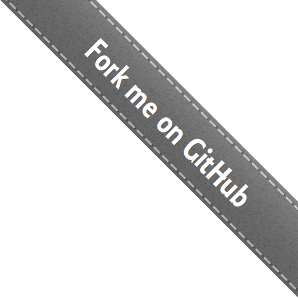Tips and Tricks
Installing previous versions of formulae
The supported method of installing specific versions of
some formulae is to see if there is a versioned formula (e.g. gcc@6) available. If the version you’re looking for isn’t available, consider opening a pull request!
Installing directly from pull requests
You can browse pull requests and install through the direct link. For example, Python 3.3.0 from pull request Homebrew/homebrew#15199:
brew install https://raw.github.com/dsr/homebrew/9b22d42f50fcbc5e52c764448b3ac002bc153bd7/Library/Formula/python3.rb
Quickly remove something from /usr/local
brew unlink <formula>
This can be useful if a package can’t build against the version of something you have linked into /usr/local.
And of course, you can simply brew link <formula> again afterwards!
Activate a previously installed version of a formula
brew info <formula>
brew switch <formula> <version>
Use brew info <formula> to check what versions are installed but not currently activated, then brew switch <formula> <version> to activate the desired version. This can be useful if you would like to switch between versions of a formula.
Install into Homebrew without formulae
./configure --prefix=/usr/local/Cellar/foo/1.2 && make && make install && brew link foo
Pre-downloading a file for a formula
Sometimes it’s faster to download a file via means other than those strategies that are available as part of Homebrew. For example, Erlang provides a torrent that’ll let you download at 4–5× the normal HTTP method.
Download the file and drop it in ~/Library/Caches/Homebrew, but
watch the file name. Homebrew downloads files as <formula>-<version>.
In the case of Erlang, this requires renaming the file from otp_src_R13B03 to
erlang-R13B03.
brew --cache -s erlang will print the correct name of the cached
download. This means instead of manually renaming a formula, you can
run mv the_tarball $(brew --cache -s <formula>).
You can also pre-cache the download by using the command brew fetch formula which also displays the SHA-256 hash. This can be useful for updating formulae to new versions.
Installing stuff without the Xcode CLT
brew sh # or: eval $(brew --env)
gem install ronn # or c-programs
This imports the brew environment into your existing shell; gem will pick up the environment variables and be able to build. As a bonus brew’s automatically determined optimization flags are set.
Install only a formula’s dependencies (not the formula)
brew install --only-dependencies <formula>
Interactive Homebrew Shell
$ brew irb
1.8.7 :001 > Formula.factory("ace").methods - Object.methods
=> [:install, :path, :homepage, :downloader, :stable, :bottle, :devel, :head, :active_spec, :buildpath, :ensure_specs_set, :url, :version, :specs, :mirrors, :installed?, :explicitly_requested?, :linked_keg, :installed_prefix, :prefix, :rack, :bin, :doc, :include, :info, :lib, :libexec, :man, :man1, :man2, :man3, :man4, :man5, :man6, :man7, :man8, :sbin, :share, :etc, :var, :plist_name, :plist_path, :download_strategy, :cached_download, :caveats, :options, :patches, :keg_only?, :fails_with?, :skip_clean?, :brew, :std_cmake_args, :deps, :external_deps, :recursive_deps, :system, :fetch, :verify_download_integrity, :fails_with_llvm, :fails_with_llvm?, :std_cmake_parameters, :mkdir, :mktemp]
1.8.7 :002 >
Hiding the beer mug emoji when finishing a build
export HOMEBREW_NO_EMOJI=1
This sets the HOMEBREW_NO_EMOJI environment variable, causing Homebrew to hide all emoji.
The beer emoji can also be replaced with other character(s):
export HOMEBREW_INSTALL_BADGE="☕️ 🐸"
Editor plugins
Sublime Text
In Sublime Text 2/3, you can use Package Control to install Homebrew-formula-syntax, which adds highlighting for inline patches.
Vim
brew.vim adds highlighting to inline patches in Vim.
Emacs
homebrew-mode provides syntax highlighting for inline patches as well as a number of helper functions for editing formula files.
pcmpl-homebrew provides completion for emacs shell-mode and eshell-mode.
Atom
language-homebrew-formula adds highlighting and diff support (with the language-diff plugin).

